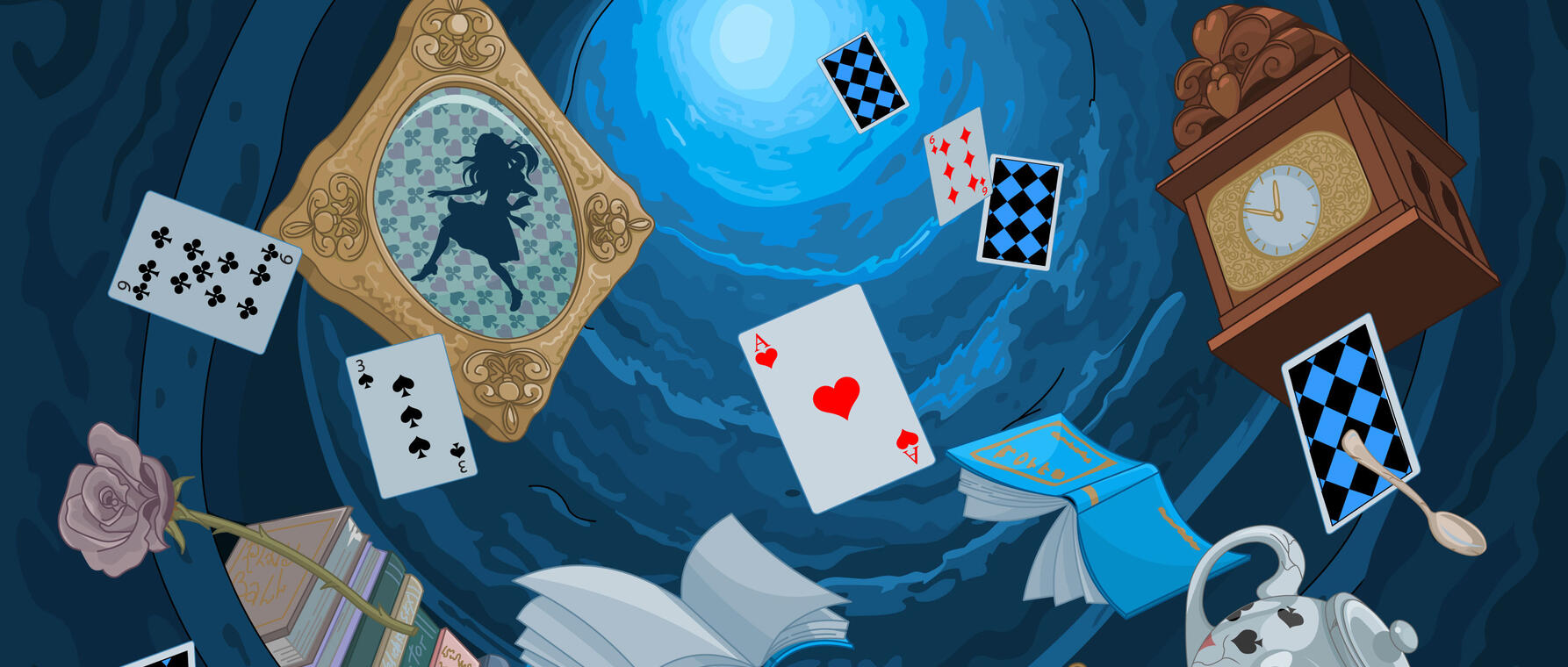With Apologies to Rabbits
Notes from a Writer's Desk

There’s often a fine line between letting research guide you and getting lost chasing ideas down rabbit holes.
While I have never tried to catch a rabbit, I imagine it is (at least roughly) something like cutting through the underbrush, chasing a trail, following it to ground, and at long last finding that little gap in the earth where you should dig. (Those more experienced with outdoor pursuits will forgive any metaphorical inaccuracies. I’m after the analogy, not the rabbit.) It takes tremendous effort, and rabbit holes are only worth exploring if you’re genuinely after the specific discoveries they may contain.
In simpler terms: you won’t always know at first what lines of research will prove productive, but you can develop the skill of identifying unproductive paths more quickly. This will allow you to refocus your attention, and will save you time and trouble.
Writing a large project, such as a dissertation or book manuscript, requires balancing numerous competing demands, and you can’t write the whole thing at once. It is hard to maintain a deep focus on the topic at hand while also keeping the bigger picture in mind.
In many disciplines research and writing occur simultaneously, so you must pursue intriguing, unplanned ideas in the midst of a larger one. This can be a good thing! If something piques your interest as an expert it’s likely important, and rigid conformity to old ideas can hamper innovation. However, you can apply a second, useful layer of scrutiny: Is the new idea important to the work you’re doing right now?
There is, alas, a certain amount of ruthlessness required to complete a large piece of writing. Your project will be brimming with good ideas, but to keep moving forward you’ll have to leave many behind. Even more frustrating are the pieces that don’t fit in after you have spent weeks on them. And there are times when you really do need to chase something to ground, even if it doesn’t make it into the final version of your work; it isn’t all wasted effort, and not all meaningful research will be cited and footnoted. You should be most cautious, however, when you’re stuck; these times are when the allure of chasing something new is most tempting.
And this is where you must be ruthless. Rabbit holes can create the illusion of progress as you delve into new concepts or pathways. If you find yourself expending significant energy on something new, deep down you probably already know (or soon will know) whether it’s truly essential or just a distraction. Trust this instinct, which you have earned and cultivated over long years of study. Forward motion is hard; sideways exploration—or standing still to contemplate a new path—is easier. There are times for both.
A simple question can help prevent wasted effort: Can I use this idea right now? If not, does it have a clear place in my larger project?
If you’re even asking this question, you may have doubts. Sadly, the answer will often be “no.” It’s painful to set aside interesting thoughts, but the beauty of scholarship is that you can (and should) save your research and notes for future use. In the present, you must be ruthless.
Of course, at the beginning of any project you should explore new ideas, topics, and approaches. Chase a few rabbits, but then—and this is key—decide which ones you truly want to pursue. It’s hard, and the lingering “what if” is seductive. But checking in with yourself regularly can shift the scope of your inquiry from “all research that is interesting and related” to the more challenging, but also more useful, “research that defines, supports, expands, or challenges my argument.”
A healthy skepticism toward rabbit holes becomes particularly important as you move beyond the initial stages. By that point, no matter the word count, you’ll have a clearer sense of what your project is and, just as importantly, what you want it to achieve. It won’t unfold exactly as planned, and it will almost certainly deviate from your outline. That’s perfectly normal and is a testament to your vitality as an honest and dedicated researcher. But you must trust yourself enough to be ruthless. There are more rabbits than time, and you should (ideally, imperfectly) chase only those that are to your benefit.
Years of dedication and scholarship have given you an understanding of your field and the ideas it contains. You are an expert in your chosen topic, in the act of proving that very fact to the world. Trust your instincts. Be ruthless when you must, and bring home not just any prize but the right one—with apologies to rabbits.
Ready to book an appointment with FWC staff? Access the FWC intake form.
Get the Latest Updates
Join Our Newsletter
Subscribe to Colloquy Podcast
Simplecast




